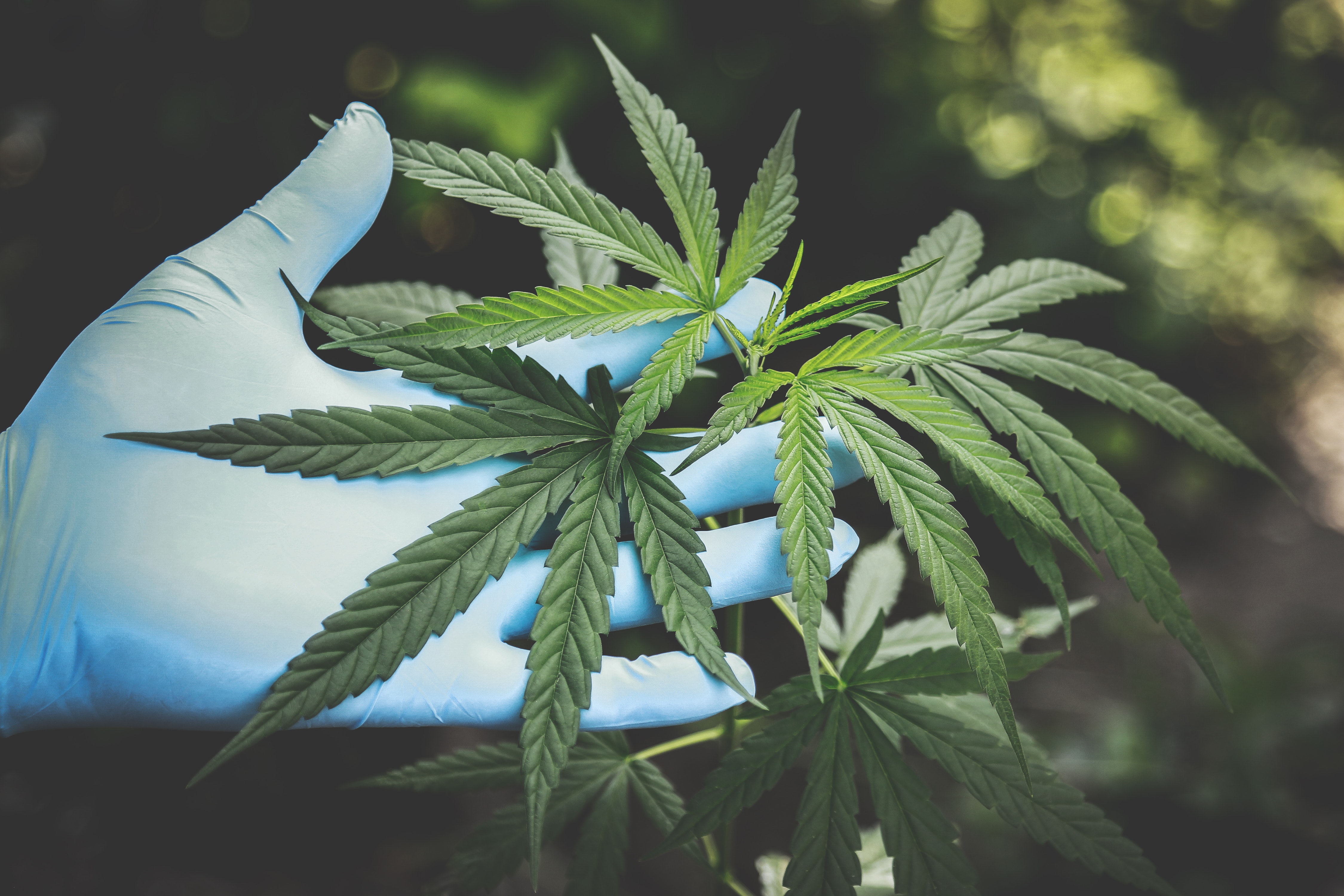Politics
Medical Marijuana Group Urges Governors To Protect Patient Access Amid Coronavirus Outbreak

As state and local governments across the U.S. shutter businesses and prohibit gatherings in an attempt to limit the spread of the COVID-19 pandemic, medical marijuana patients and advocates are urging policymakers not to close down cannabis dispensaries completely.
Such a move, they warn, would leave hundreds of thousands of patients stranded without access to medicine, and many would have no choice but to turn to the illicit market.
In an “emergency call to action” sent Monday to governors of legal medical marijuana states, Americans for Safe Access, a leading nonprofit medical cannabis advocacy group, asked the officials to take immediate steps to ensure that patients have access to products during a period of social distancing that has no clear end in sight.
Yesterday, we sent a letter to governors and directors of state medical cannabis programs asking them to take immediate action to ensure that patients continue to have access to medical cannabis and that the supply chain is not interrupted. #SafeAccesshttps://t.co/MjhTK4pkN1
— Americans4SafeAccess (@SafeAccess) March 17, 2020
The letter came the same day that San Francisco’s Department of Public Health ordered all dispensaries in the city closed, announcing that both storefront dispensaries and delivery services “are not considered an ‘essential business’” and will need to close as of Tuesday.
San Francisco cannabis dispensaries, briefly beneficiaries of coronavirus-induced buying panic, are now shuttered. Ordered closed starting tomorrow by order of city Department of Public Health, joining bars and restaurants. Delivery also banned. No medicine for patients. pic.twitter.com/IYknfvvZ9A
— Chris Roberts (@cbloggy) March 17, 2020
Other jurisdictions are taking more proactive approaches to meeting patient needs. In Pennsylvania, dispensaries are expected to remain open because they fall into the same classification as pharmacies. In Michigan and Illinois, officials have temporarily allowed curbside pickups at cannabis retail stores in order to allow medical patients and consumers access to marijuana while limiting the spread of the virus from person to person.
Medical marijuana dispensaries deemed "essential" and won't be told to close, according to PA Health Department. They're akin to pharmacies, said health spokesman. All bars, liquor stores and eat-in restaurants, however, have been asked to go dark for at least two weeks.
— sam wood (@SamWoodIII) March 14, 2020
In its letter to governors, ASA recommends that policymakers take steps now to protect cannabis patients and ensure they have access to medical marijuana in coming months. It lists eight measures to put into place “immediately to ensure that patients do not have disrupted access to their medicine”:
- Make sure that cannabis businesses that serve patients are considered “essential” businesses.
- Instruct medical cannabis businesses on how they can make legal temporary changes to their business plans, including delivery and purchase limits, to accommodate patients and staff during the crisis.
- Give tax relief to patients and businesses.
- Allow cultivation and processing centers to stay open to ensure a steady supply of medicine in the future.
- Extend the expiration dates of state-issued cannabis identification cards so that doctors and other health care providers can focus on COVID-19.
- Permit authorized caregivers to serve additional patients during the crisis period.
- Allow telehealth visits for new and renewing medical cannabis patients.
- Allow dispensaries to deliver medical cannabis to qualifying patients and caregivers in vehicles parked in the dispensary parking lots.
ASA is also asking concerned citizens to write to their governors, insisting that patient access to cannabis be protected during the pandemic.
Medical marijuana patients “represent some of the states’ most vulnerable citizens,” ASA interim Director Debbie Churgai said in the letter. “We are calling on states to take precautions now to help ensure that patients have access today and that measures are taken to ensure that the supply chain is not interrupted.”
Summit County and the towns in the county are ordering restaurants, bars and retail shops with general foot traffic to close at 10pm to slow the spread of COVID-19. Banks grocery stores, liquor stores, marijuana dispensaries, pharmacies and gas stations can stay open. #9News pic.twitter.com/yeEONKlrzD
— Matt Renoux (@MattRenoux) March 16, 2020
As officials scramble to determine which businesses can remain open during the outbreak, jurisdictions so far have taken a variety of approaches to marijuana availability, for both patients and adult non-medical consumers. In Massachusetts, medical dispensaries “have been advised they may consider the promotion and geographic expansion of delivery service,” the state Cannabis Control Commission said in a release last week, “and to remind patients of the ability to acquire up to a 60-day medical grade marijuana supply.
Dispensaries are to remain open in Puerto Rico, too, where the Department of Health announced on Monday that the medical cannabis industry will be excluded from the governor’s recent mandatory shutdown order there.
Parts of Colorado are also allowing dispensaries to stay open. Summit County, for example, will allow cannabis retailers to remain open, along with liquor stores, gas stations, banks, grocery stores and pharmacies.
And in the Netherlands, the country’s iconic coffeeshops are staying open, but they’re no longer social destinations. For the foreseeable future, only to-go sales are allowed.
El Gobierno de los Países Bajos ha autorizado la apertura de los coffeeshops siempre y cuando ofrezcan únicamente #cannabis para llevarhttps://t.co/ieAEaz8God
— Hash Marihuana & Hemp Museum (@HempMuseumBCN) March 17, 2020
In other areas such as Washington State, individual businesses have adopted policies designed to limit interaction between visitors and avoid spreading coronavirus. Lines have begun to grow on sidewalks as stores restrict the number of people inside at one time. To help speed transactions, businesses are asking customers to place orders in advance through online menus.
Complicating the social-distancing effort is the fact that delivery services remain illegal in the state for both medical and adult-use marijuana, forcing patients and customers to show up in person. Home cultivation is allowed only for state-licensed medical patients.
Other cannabis-related efforts have seen obstacles as COVID-19 spreads through the country.
In California, organizers behind a proposed ballot initiative to expand cannabis access (including filmmaker Kevin Smith and actor Jason Mewes of “Jay and Silent Bob” fame) have asked officials to let them seek signatures online rather than in person.
In Washington, D.C., organizers also want to be able to collect signatures online for a measure that would decriminalize certain psychedelics. And throughout the country, uncertainty and fears of prolonged quarantines have led patients and consumers to flock to retail outlets.
Filmmaker Kevin Smith Requests Digital Signatures For Marijuana Initiative Due To Coronavirus
Photo by Aphiwat Chuangchoem
















